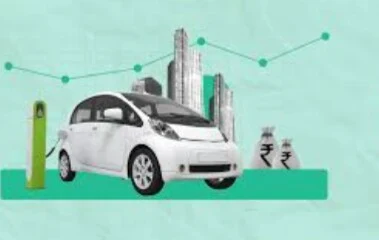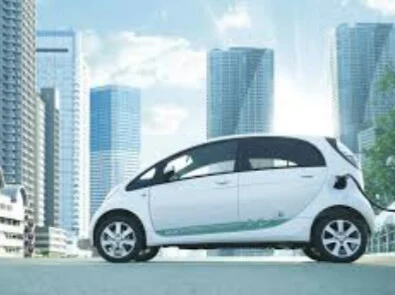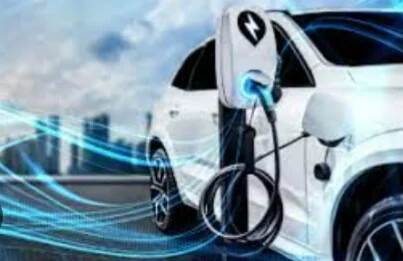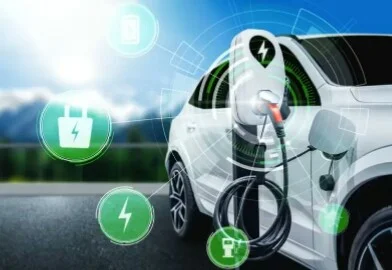Electric Vehicle
South Korea electric vehicle revolution
South Korea, a country renowned for its technological advancements and innovation, is leading the way in the transition to sustainable transportation with the rapid adoption of electric vehicles (EVs).
As global concerns about climate change and air pollution intensify, South Korea is spearheading the electric vehicle revolution, aiming to create a greener and more environmentally friendly future.
In this article, we will explore the growing popularity of electric vehicles in South Korea, the infrastructure developments supporting their adoption, and the government's initiatives to drive electric vehicle usage.
South Korea's Electric Vehicle Revolution
| Feature | South Korea |
|---|---|
| Market Share | One of the leading countries in EV adoption, with a significant portion of new car sales being electric. |
| Government Incentives | Strong government support, including tax breaks, subsidies, and charging infrastructure development. |
| Infrastructure | Extensive charging network, with public charging stations available throughout the country. |
| Leading Brands | Domestic brands like Hyundai and Kia are major players in the EV market, along with international brands like Tesla. |
| Environmental Focus | South Korea has ambitious climate goals and prioritizes sustainable transportation, making EVs a natural choice. |
| Challenges | While adoption is high, challenges remain in terms of charging infrastructure in rural areas and the availability of affordable electric vehicles for all income levels. |
| Unique Initiatives | South Korea has implemented unique initiatives, such as electric buses and electric taxis, to promote sustainable transportation. |
The infrastructure development of Electric Vehicle in South Korea
1. A Technological Hub Embracing Electric Mobility:
As a global leader in technology and manufacturing, South Korea is no stranger to cutting-edge innovations. The country's automotive industry has wholeheartedly embraced electric vehicles, with major manufacturers introducing a wide range of electric models to the market. South Korean consumers are increasingly drawn to the benefits of EVs, including lower emissions, reduced fuel costs, and a smoother and quieter driving experience.
2. Expanding Charging Infrastructure:
South Korea is making significant investments in expanding its charging infrastructure to accommodate the growing number of electric vehicles. The country boasts an extensive network of charging stations, including fast-charging and ultra-fast-charging options, strategically located in urban centers, parking lots, shopping malls, and highways. The convenience and accessibility of charging infrastructure are vital in fostering EV adoption and addressing concerns about range anxiety.
3. Government Support and Incentives:
The South Korean government has implemented various incentives and policies to promote the widespread adoption of electric vehicles. These include generous subsidies, tax benefits, and purchase incentives for both individual consumers and businesses. The government has also set ambitious targets for electric vehicle sales, encouraging automakers to invest in electric vehicle production and technology development. These initiatives demonstrate the government's commitment to a greener and sustainable future.
4. Technological Advancements and Innovation:
South Korea is at the forefront of technological advancements in electric vehicles. The country's battery manufacturers are among the world leaders in developing high-performance batteries for electric vehicles, ensuring longer ranges and faster charging times. Furthermore, South Korean companies are driving innovation in autonomous driving technology, connectivity, and energy management systems, enhancing the overall electric vehicle experience and shaping the future of transportation.
5. Smart City Initiatives:
South Korea's commitment to sustainable mobility extends beyond electric vehicles. The country is investing in smart city initiatives that integrate electric vehicles, renewable energy, and advanced transportation systems. These initiatives focus on creating a seamless and efficient ecosystem where electric vehicles are interconnected with charging infrastructure, renewable energy sources, and intelligent transportation networks. Such holistic approaches further promote the adoption of electric vehicles and pave the way for a sustainable urban environment.
A Technological Hub for Electric Vehicle in South Korea
South Korea has emerged as a significant hub for electric vehicles (EVs), known for its technological advancements in the field.
Several factors contribute to South Korea's position as a leader in EV technology:
1. Manufacturing Excellence: South Korea is home to major automotive manufacturers such as Hyundai and Kia, which have heavily invested in EV technology. These companies have developed and produced electric vehicles, contributing to the country's expertise in manufacturing EVs.
2. Battery Technology: South Korea is a global leader in battery technology, a crucial component of EVs. Companies like Samsung SDI and LG Chem have made significant advancements in battery technology, including high-energy-density lithium-ion batteries, and supply batteries to EV manufacturers worldwide.
3. Charging Infrastructure: South Korea has established an extensive network of charging stations to support EV adoption. The government has invested in the development of charging infrastructure, including fast-charging stations, making it convenient for EV owners to charge their vehicles.
4. Research and Development: South Korea has made substantial investments in EV research and development. Academic institutions and research centers collaborate with industry players to advance EV technology, address challenges, and develop innovative solutions.
5. Government Support: The South Korean government has implemented policies and incentives to promote EV adoption. This includes tax benefits, subsidies for EV purchases, and support for EV infrastructure development. Such initiatives stimulate consumer demand and encourage investment in the EV industry.
6. Collaboration and Partnerships: South Korea actively collaborates with international partners, including automakers, battery manufacturers, and technology companies. These collaborations facilitate knowledge exchange and foster innovation in the EV sector.
Through manufacturing excellence, battery technology advancements, charging infrastructure development, research and development efforts, government support, and collaborations with international partners, South Korea has established itself as a leading technological hub for electric vehicles. This positioning contributes to the country's contributions to the global shift towards sustainable transportation.
South Korea's technological prowess and commitment to sustainability position it as a leader in the electric vehicle revolution. With a robust charging infrastructure, government support, technological advancements, and smart city initiatives, South Korea is driving the transition to a greener and cleaner transportation system. The widespread adoption of electric vehicles not only reduces carbon emissions but also propels innovation and strengthens South Korea's global standing in automotive technology. As South Korea powers the future with electric vehicles, it sets an inspiring example for other nations seeking a sustainable and electric mobility revolution.
Electric Vehicle Manufacture in South Korea
South Korea is home to several major automotive manufacturers that actively engage in the production of electric vehicles (EVs). Two prominent companies leading the EV manufacturing sector in South Korea are Hyundai Motor Company and its sister brand, Kia Motors.
Here are some key points regarding electric vehicle manufacture in South Korea:
1. Hyundai Motor Company: Hyundai has been a frontrunner in EV production and has made significant strides in developing electric vehicle technology. The company offers various electric models, including the Hyundai Kona Electric, Hyundai Ioniq Electric, and Hyundai NEXO fuel cell electric vehicle. Hyundai has dedicated manufacturing facilities for electric vehicles, and their EVs have gained recognition for their range, performance, and affordability.
2. Kia Motors: Kia Motors, a subsidiary of Hyundai Motor Company, has also ventured into the electric vehicle market. Kia offers electric models such as the Kia Soul EV, Kia Niro EV, and Kia EV6. These vehicles have gained popularity for their stylish designs, advanced features, and competitive performance.
3. Battery Production: South Korea is a significant player in the global battery manufacturing industry. Companies like Samsung SDI and LG Chem produce lithium-ion batteries, which are crucial components of electric vehicles. These battery manufacturers supply their products not only to domestic automakers but also to global EV manufacturers, contributing to the growth of the EV market worldwide.
4. Government Support: The South Korean government has been actively supporting the development and production of electric vehicles. They have implemented various incentives and policies to promote EV adoption, including subsidies for EV purchases, tax benefits, and infrastructure development support. These initiatives encourage automakers to invest in EV manufacturing and propel the growth of the industry.
5. Research and Development: South Korea emphasizes research and development activities in the EV sector. Academic institutions, research centers, and automotive companies collaborate to advance electric vehicle technology, improve battery performance, and enhance overall EV efficiency. These efforts contribute to the continuous innovation and improvement of electric vehicle manufacturing in the country.
6. Global Expansion: South Korean automakers, including Hyundai and Kia, have been expanding their EV manufacturing globally. They have established production facilities in various countries to meet the growing demand for electric vehicles worldwide. This expansion strategy helps strengthen South Korea's position in the global EV market and promotes the adoption of sustainable transportation solutions.
South Korea's electric vehicle manufacturing industry is driven by the efforts of companies like Hyundai and Kia, supported by a robust battery production sector, government initiatives, and a strong focus on research and development. The country's advancements in electric vehicle manufacturing contribute to the global transition towards cleaner and more sustainable transportation.
Electric Vehicle Tax Benefit in South
South Korea provides tax benefits and incentives to promote the adoption and usage of electric vehicles (EVs).
These measures are outlined in the following regulations:
1. Vehicle Acquisition Tax Exemption: According to Article 7(1)(3) of the Vehicle Acquisition Tax Act, electric vehicles are exempt from the vehicle acquisition tax, which is typically imposed on the purchase of new vehicles.
2. Vehicle Ownership Tax Reduction: Under Article 20(1)(3) of the Vehicle Tax Act, electric vehicle owners enjoy a reduction in the annual vehicle ownership tax. The exact reduction amount depends on various factors such as vehicle type, weight, and engine displacement.
3. Energy Consumption Tax Reduction: Electric vehicles benefit from a reduced energy consumption tax rate for electricity used in charging. This reduction is in accordance with Article 9(1) of the Energy Consumption Tax Act.
4. Electricity Charge Discount: Local governments offer electricity charge discounts for EV owners, as specified in regional regulations. These discounts provide reduced rates for electricity consumed during EV charging.
5. Parking Fee Discounts: Many municipalities and parking facilities provide discounts or exemptions for parking fees specifically for electric vehicles. The exact details of these discounts can be found in local government ordinances or policies.
6. High Occupancy Vehicle (HOV) Lane Access: Electric vehicles are granted access to high occupancy vehicle lanes or carpool lanes, even with a single occupant. This privilege is established under Article 63(2) of the Road Traffic Act.
It's important to note that the specific tax benefits and incentives may vary and are subject to change over time. The South Korean government periodically reviews and updates these regulations to align with the evolving needs of the EV market and sustainability goals.
To determine the exact tax benefits and incentives available for electric vehicles in South Korea, it is recommended to consult the relevant articles of the corresponding acts and regulations or reach out to local authorities responsible for vehicle taxation and incentives.
Latest Technology for Electric Vehicle in South
South Korea is continuously investing in research and development to stay at the forefront of electric vehicle (EV) technology.
Here are some of the latest advancements in EV technology from South Korea:
1. Solid-State Batteries: Solid-state batteries are considered the next generation of battery technology for electric vehicles. South Korean companies, including Samsung SDI and LG Chem, are actively researching and developing solid-state batteries. These batteries offer higher energy density, faster charging capabilities, and improved safety compared to traditional lithium-ion batteries. South Korea aims to commercialize solid-state batteries to enhance the performance and range of EVs.
2. Wireless Charging: South Korea is at the forefront of wireless charging technology for electric vehicles. Companies like Hyundai and Kia are developing wireless charging systems that eliminate the need for physical charging cables. This technology enables EVs to charge by parking over a wireless charging pad, enhancing convenience and promoting widespread adoption of electric vehicles.
3. Connected Car Technology: South Korean automakers are integrating advanced connectivity features into their electric vehicles. These features include real-time traffic updates, remote vehicle control through smartphone apps, and vehicle-to-infrastructure communication. By leveraging connectivity, South Korean EVs provide enhanced driving experiences and improved efficiency.
4. Autonomous Driving: South Korea is actively involved in the development of autonomous driving technology for electric vehicles. Companies like Hyundai and Kia are investing in advanced driver-assistance systems (ADAS) and self-driving capabilities. These technologies aim to enhance safety, efficiency, and comfort in electric vehicles, paving the way for a future of autonomous electric mobility.
5. Energy Management and Grid Integration: South Korea recognizes the importance of managing energy resources efficiently in the context of electric vehicles. Companies and research institutions are developing smart grid solutions and energy management systems that optimize EV charging and integrate with renewable energy sources. These advancements ensure optimal use of electricity, reduce strain on the grid, and promote the integration of EVs into the energy ecosystem.
6. Lightweight Materials and Design: South Korean manufacturers are focusing on lightweight materials and innovative design approaches to improve the efficiency and performance of electric vehicles. The use of high-strength steel, aluminum, and carbon fiber-reinforced composites reduces vehicle weight, leading to improved range and energy efficiency. South Korea's design expertise also results in sleek, aerodynamic EV models.
7. Hydrogen Fuel Cell Technology: While not exclusively an electric vehicle technology, South Korea is making strides in hydrogen fuel cell technology. Hydrogen fuel cell electric vehicles (FCEVs) offer zero-emission mobility and longer driving ranges. Companies like Hyundai are actively producing FCEVs and developing infrastructure to support hydrogen fuel cell vehicles.
These are just a few examples of the latest technologies being developed in South Korea for electric vehicles. The country's commitment to research, development, and innovation ensures that it remains a global leader in the electric vehicle industry, contributing to the advancement of sustainable transportation solutions.
Future Outlook of South Korea's Electric Vehicle Development
The future outlook of South Korea's electric vehicle (EV) development looks promising, as the country continues to prioritize and invest in sustainable transportation solutions.
Here are some key aspects that shape the future of EVs in South Korea:
1. Expansion of Electric Vehicle Lineup: South Korean automakers, particularly Hyundai and Kia, have ambitious plans to expand their electric vehicle lineup. They aim to introduce a wide range of EV models, including sedans, SUVs, and even electric performance vehicles. This diversification of offerings will cater to different customer preferences and help accelerate EV adoption in South Korea and global markets.
2. Advancements in Battery Technology: South Korea is actively working on advancements in battery technology to improve energy density, charging speed, and overall performance. The development and commercialization of solid-state batteries hold significant potential for EVs, offering higher energy storage capacity and enhanced safety. South Korean battery manufacturers like Samsung SDI and LG Chem are expected to play a crucial role in driving these advancements.
3. Infrastructure Development: South Korea continues to invest in charging infrastructure to support the growing number of electric vehicles on the roads. The government aims to expand the network of charging stations, including fast-charging options, to ensure convenient and accessible charging for EV owners across the country. This infrastructure expansion will address range anxiety concerns and further encourage EV adoption.
4. Collaborations and Partnerships: South Korean automakers are actively seeking collaborations and partnerships with global tech companies, battery manufacturers, and mobility service providers. These alliances foster technological exchange, innovation, and the development of advanced EV solutions. Collaborations may include joint ventures for battery production, partnerships for autonomous driving technology, or collaborations to enhance connected car features.
5. Autonomous and Connected Features: South Korea is making significant progress in autonomous driving and connected car technologies. The integration of advanced driver-assistance systems (ADAS), vehicle-to-vehicle communication, and artificial intelligence enhances safety, convenience, and efficiency in electric vehicles. South Korean companies are actively developing and testing autonomous driving systems for future EVs, aligning with global trends towards autonomous mobility.
6. Government Support and Regulations: The South Korean government continues to provide support for electric vehicle adoption through various policies and incentives. This includes subsidies for EV purchases, tax benefits, and funding for research and development. Stricter emissions regulations and targets for reducing greenhouse gas emissions also drive the transition towards EVs in South Korea.
7. Global Market Expansion: South Korean automakers are actively expanding their presence in global EV markets. They are investing in manufacturing facilities and establishing partnerships to produce electric vehicles in different regions. The global expansion will not only enhance the market share of South Korean EVs but also contribute to the overall growth and sustainability of the country's EV industry.
"South Korea's future outlook for electric vehicle development is promising".
The country's commitment to technological advancements, infrastructure development, collaborations, and government support will continue to drive the growth and adoption of electric vehicles. With ongoing innovation and a focus on sustainability, South Korea is likely to remain a key player in the global electric vehicle market.

.jpg)



